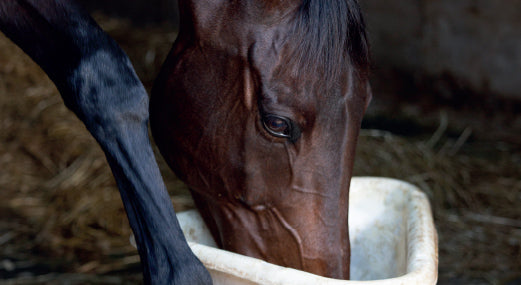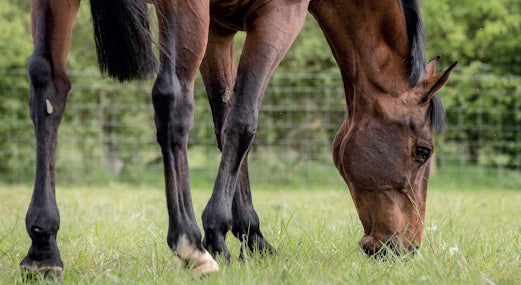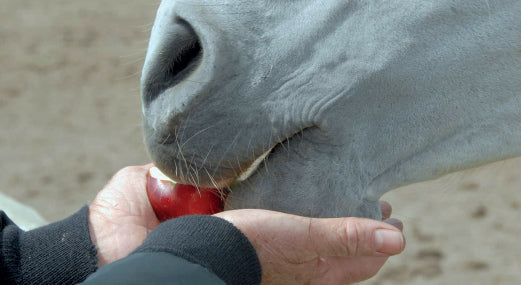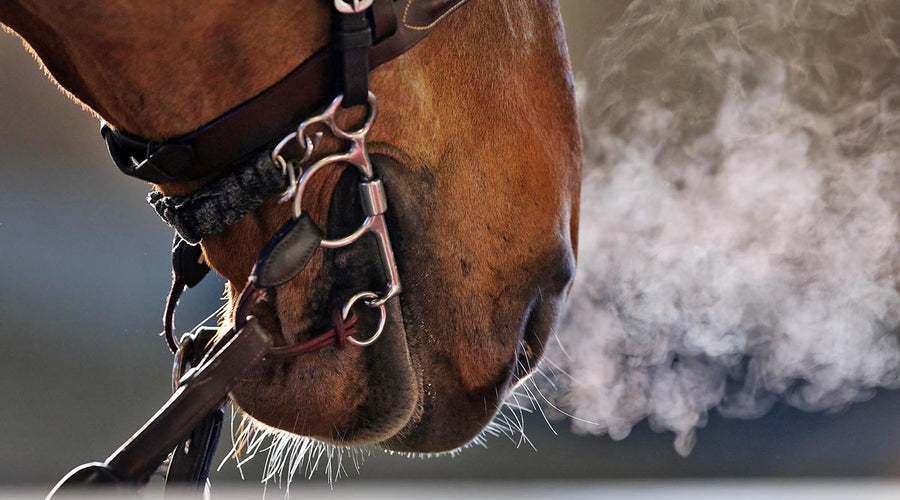Health & Nutrition
How does being ridden by different people affect horses’ responses to training?
Riders differ in many aspects including skill, experience, gender, weight, height, and riding style. These differences likely impact on horses ridden by different riders and may result in training cues being applied i...
Read More
How do changes to a normal feeding routine affect equine behaviour?
Consistent management regimes are recommended in the care of horses to minimise the incidence of digestive issues and stereotypic behaviours. Predictable feeding times support good welfare and minimise environmental d...
Read More
Does withholding forage feed affect the faecal bacterial microbiota in healthy horses?
Changes in faecal bacteria populations are associated with gastrointestinal disease in a range of species. Horses presenting with colic have been shown to have a decreased diversity and species richness of faecal and ...
Read More
Can a calcium supplement derived from seaweed, affect the pH of gastric juice in horses?
The horse’s stomach consists of an upper non-glandular (squamous) area and a lower glandular area. The glandular area secretes acidic gastric juices, essential to support digestion. The non-glandular area lacks suitab...
Read More
How do horses and humans differ in their preference for treats?
The use of treats for companion animals is common. The use of treats by equine caregivers is increasing, although has been little studied to date, especially in comparison to treat use and choice for other companion s...
Read More
How does the packaging of horse treats affect their palatability and shelf-life?
The use of treats in animal training and management is becoming commonplace. The packaging that treats are stored and sold in varies but should protect the contents from environmental challenges and maintain the integ...
Read More
Does Light Therapy Aid Wound healing?
Light‐emitting diodes (LEDs) are commonly used for treating a variety of disorders in horses, including wounds. Despite anecdotal claims that these LEDs shorten healing times, there is a lack of scientific evaluation ...
Read More
Is obesity linked to low grade systemic inflammation in horses?
It is well recognised that human obesity is linked with systemic inflammation and predisposes the individual to multiple diseases. However, it is unproven if obese equines also produce more inflammatory mediators and ...
Read More
How to tell if your horse is in pain from dental disorders
Dental problems can cause significant discomfort and pain in horses. Sadly, many horses do not demonstrate obvious clinical signs of dental pain leading to delayed diagnosis and treatment which could impact welfare an...
Read More
Severe equine asthma is associated with thickening of the pulmonary arteries
Severe equine asthma leads to raised blood pressure in the pulmonary arteries (pulmonary hypertension) which, if sustained over a long time, can result in right sided heart failure.
Lung inflammation and narrowing of ...
Read More
Do supplements containing turmeric and devil’s claw irritate the equine stomach?
Supplements containing turmeric and devil’s claw are frequently recommended and fed to horses with inflammatory conditions such as arthritis due to the inhibitory effect these compounds have on the production of the i...
Read More
The effect of feeding and stable management on stereotypic behaviours in horses
Many horses demonstrate abnormal behaviour patterns as a result of domestic management practices1. These abnormal behaviours are termed ‘stereotypic’ and tend to be repeated and predictable in their occurrence. Horses...
Read More













